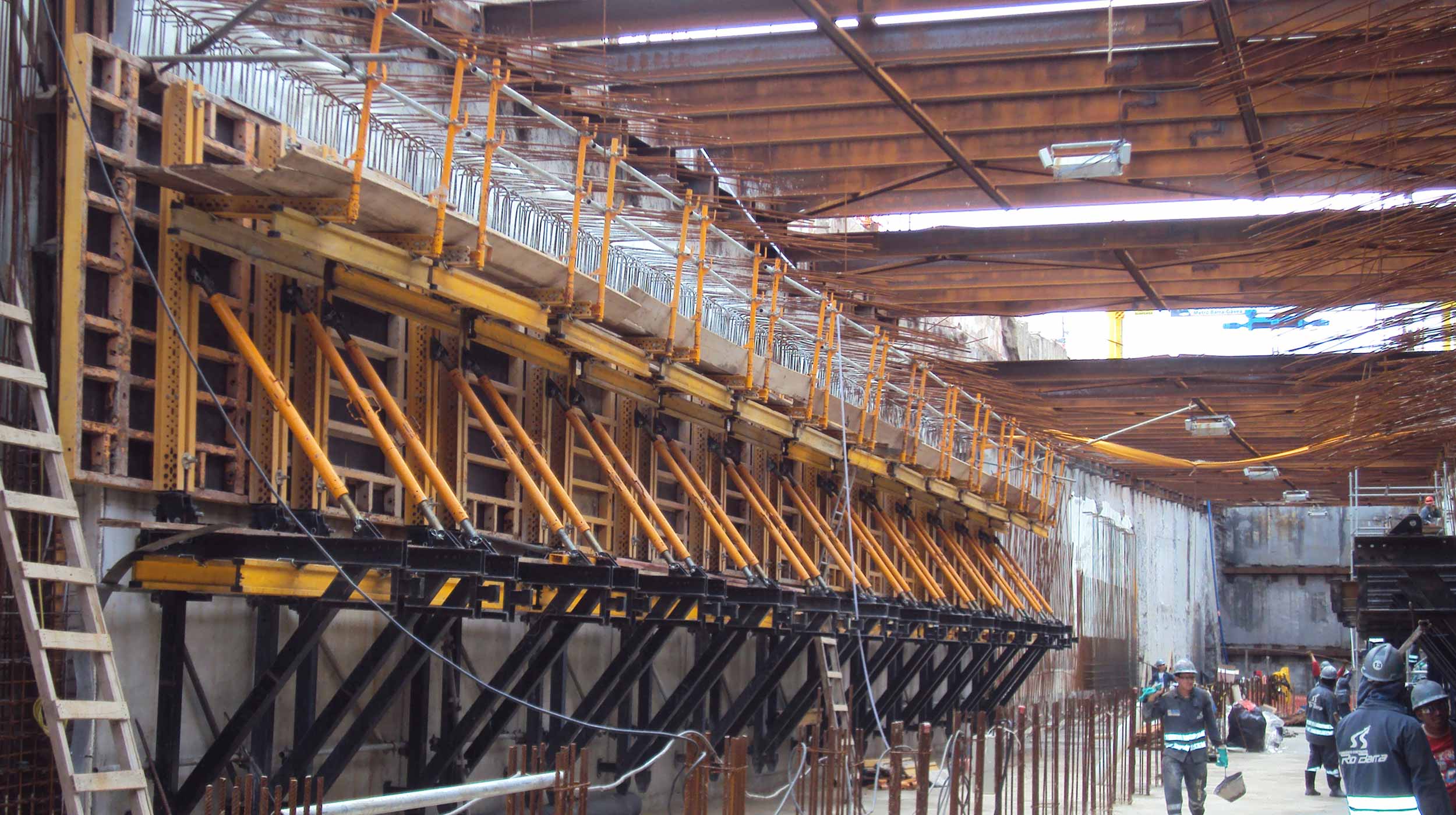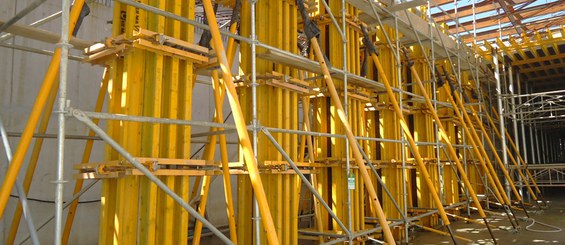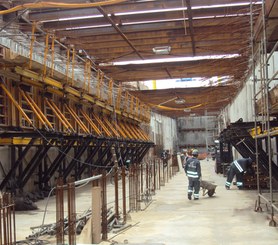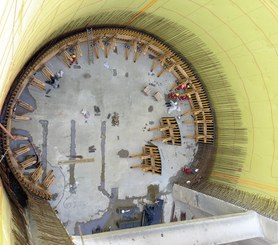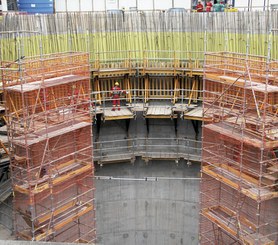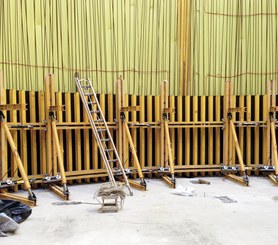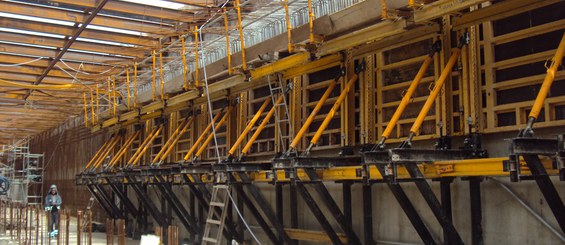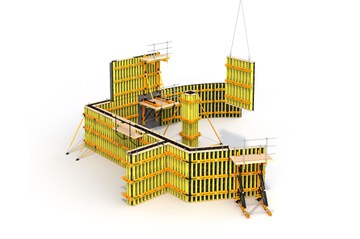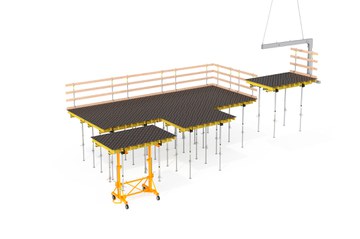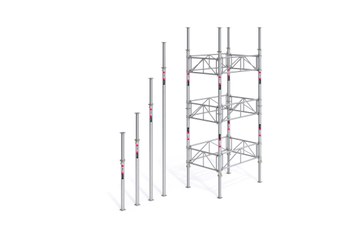Description
Aiming at boosting growth in the country, the Brazilian authorities decided to focus their investments on the infrastructure sector, in particular on the urban public transport system. ULMA is involved in the metro projects of the two most populated metropolises, São Paulo and Rio de Janeiro.
Line 4 is going to link the well-known Ipanema zone in the south with the eastern Jardim Oceânico station. The project is part of the 16 km long new public transport routes and 6 stations planned to be built in the city: Jardim Oceânico, São Conrado, Gávea, Antero de Quental, Jardim de Alah y Nossa Senhora da Paz, and the extension of General Osório. Once completed, it is going to transport 300,000 passengers per day.
ULMA Solution
The challenge of this project consisted in providing solutions for the reuse of formwork and shoring equipment in the project; and that it would not be necessary to continuously assemble and dismantle the equipment for each next pouring stage. ENKOFORM VMK, ORMA Modular Formwork, VR Table and ALUPROP helped driving down labour costs and construction deadlines.
The 5.7 m lateral walls were built with single-sided ORMA Modular Formwork and trusses moved with trolleys from one pouring location to the next without dismantling. Due to reasons of feasibility, the lateral walls were built in two stages; the first with SMK trusses and the second with SBF single-sided climbing bracket.
Moreover to maintaining maximum material flow rates, the central 5.5 m high piers of the tunnel were to be built in a single pour with perfect surface finishing. ENKOFORM VMK fulfilled all requirements to the highest quality standards.
The slabs were built with VR tables on ALUPROPs. This solution immensely increased productivity due to the horizontal moving of the 3 x 3 m and 5.5 m high module with the Lateral Trolley VR.
ULMA's systems excelled in practicality and simplicity of assembly; excellent finishing quality and quick movement of the equipment.

